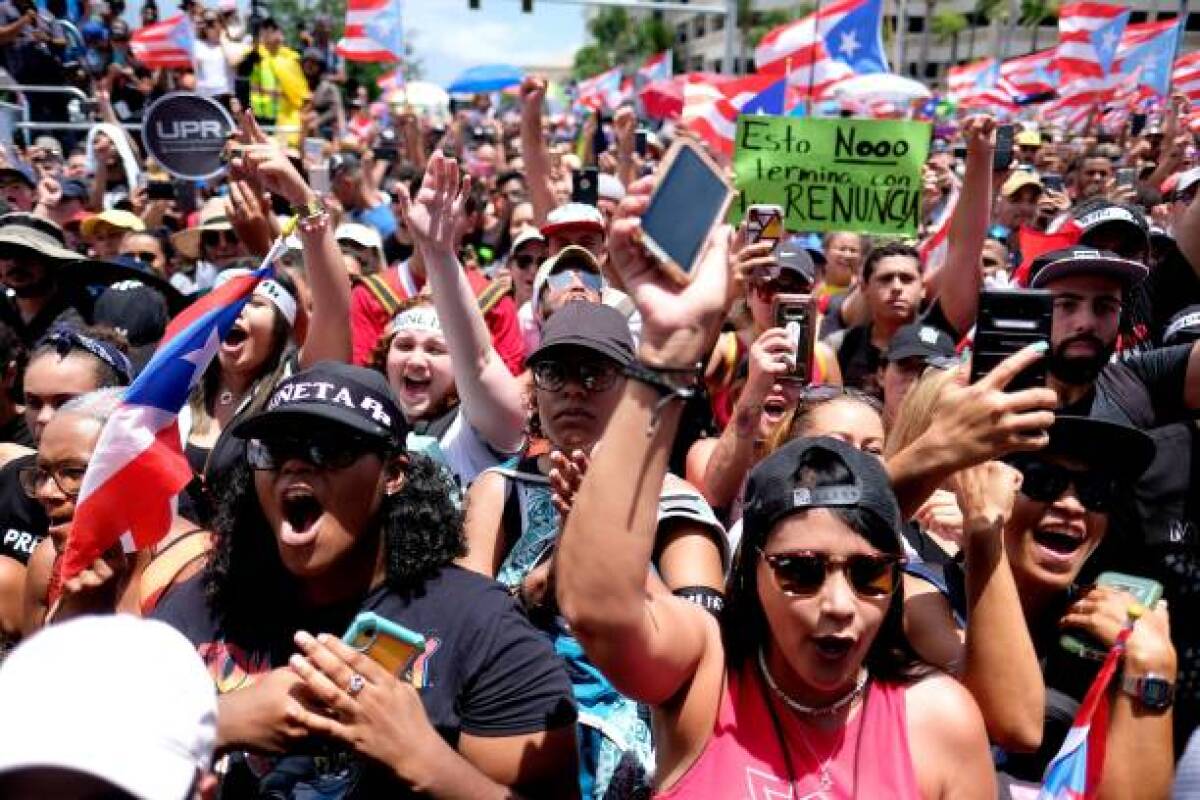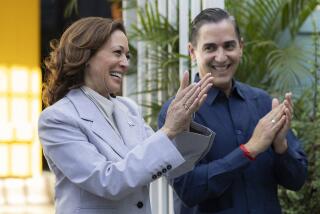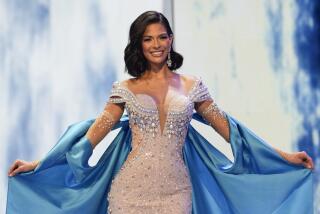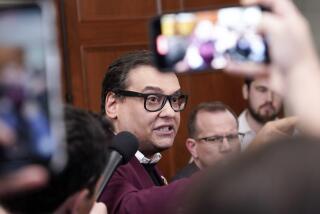In Puerto Rico, it’s the calm after the storm as protesters savor Rossello’s resignation

For many Puerto Ricans, Thursday brought complicated emotions — euphoria from the resignation of their disgraced governor tempered by concerns about the woman most likely to replace him.
After more than 10 days of massive protests across the island demanding he step down, Gov. Ricardo Rossello, embroiled in a scandal over leaked group-chat messages between him and his top aides, announced late Wednesday that he would leave office on Aug. 2.
In a prerecorded video message to the country, Rossello said that the rules laid out in Puerto Rico’s constitution meant that his successor would be Justice Secretary Wanda Vazquez.
News of Rossello’s resignation elicited an instantaneous dance party in the streets outside the governor’s official residence, La Fortaleza. Protesters hugged and sobbed. A grandmother in the crowd clanged on a pot as teenagers snapped selfies with the Puerto Rican flag, saying they planned to one day show the photos to their own children.
But even as they celebrated, #WandaVazquezRenuncia (#WandaVazquezResign) began trending on Twitter. The hashtag — a modified version of the one protesters used to call on Rossello to resign — made clear that people’s frustrations didn’t end with him.
Before long, spray-painted messages started to pop up on dozens of walls nearby:
“Adios Wanda!”
“Wanda ‘La Corrupta’ Vazquez,” read another, christening her with a nickname, the Corrupt One.
Vazquez, a longtime bureaucrat with some powerful political foes, is in line for the job because Puerto Rico’s secretary of state, who would normally replace the governor, has already resigned in the aftermath of the group-chat scandal.
A few minutes after Rossello announced he would resign, Vazquez released a statement saying she planned to work with him to ensure a responsible transition. The wording of her short statement, however, seemed to imply some uncertainty about whether she would ultimately take the top job.
“Once the resignation is official,” she wrote, “if necessary, I will assume the historic mandate.”
Some local analysts suggested that Rossello’s decision to stay on the job until next month was a move to buy time time to line up someone else for the job. In an exacting newspaper column, Jay Fonseca — an influential journalist on the island — said that Vazquez was the worst kind of politician.
“Her character,” Fonseca wrote, “is the exact opposite to justice.”
Her critics say she hasn’t forcefully tackled corruption investigations and that she has a worrisome scandal of her own.
Late last year, she was accused of improperly meddling in a housing dispute involving her daughter, marking the first time a justice secretary had ever faced criminal charges, according to El Nuevo Dia, the island’s largest newspaper.
Vazquez was ultimately cleared of any ethical violations, but many protesters say they still can’t trust her. She was appointed by Rossello, and they want a leader with a clean slate.
If she does become governor, many protestors say they will continue with the demonstrators that began earlier this month when Puerto Ricans first saw the leaked messages. The exchanges were laced with homophobia and sexism, but most offensive to many people were the jokes between Rossello and his top aides about bodies accumulating in the days after Hurricane Maria ravaged the island in September 2017.
The scandal broke days after FBI agents arrested two former top Puerto Rican officials, who have been accused of directing millions of dollars in lucrative contracts to people with political connections.
By Wednesday evening, the crowd outside La Fortaleza was growing antsy.
Rumors had been swirling all day that Rossello was going to step down. But around 1 p.m., a government spokesman released a statement saying Rossello had not yet resigned.
By about 10 p.m. local time, Carmen Yulín Cruz, the mayor of San Juan, was herself growing increasingly frustrated by what she saw as the governor’s ambivalence in the face of such unrelenting protests.
“It makes me indignant and motivates me to fight,” Cruz said in a text message, a few minutes before going on a local television channel and pleading with the governor to resign before anybody in the anxious, exhausted crowd got hurt.
Finally, just before midnight, Rossello appeared on television in the prerecorded video and announced he would step down.
The crowd shouted in unison. Car horns blared and fireworks exploded in the distance.
A woman picked up a can of black spray paint from the ground, scrawling “LIBERTAD!!!!” (“Freedom”) in big letters on the wall of an Italian restaurant, whose windows had been covered in wood slats.
“Ricky renunció!” the demonstrators chanted. “Ricky resigned!”
But even as they celebrated, many acknowledged that the fight for a transparent, honest government was far from over.
“This is huge!” said protester Cristofer Rodriguez, 26. But if the next governor doesn’t do a good job, he said, protesting will continue.
“We will do the same thing again,” he said. “The pueblo is in charge.”
Former New York City Council Speaker Melissa Mark-Viverito — whom Rossello referred to as a “whore” in the group-chat messages — described Rossello as the symptom of a much deeper, much older problem.
“It’s about corruption in general, it’s about the government not functioning for those that it’s supposed to represent,” she said .
On Thursday morning, Mark-Viverito tweeted that the date — July 25 — was deeply symbolic. On July 25, 1898, as part of the Spanish-American War, the U.S. invaded and seized Puerto Rico. And now, 121 years later, the date signified the start of another new chapter.
Carrero Galarza is a special correspondent.
More to Read
Start your day right
Sign up for Essential California for news, features and recommendations from the L.A. Times and beyond in your inbox six days a week.
You may occasionally receive promotional content from the Los Angeles Times.







